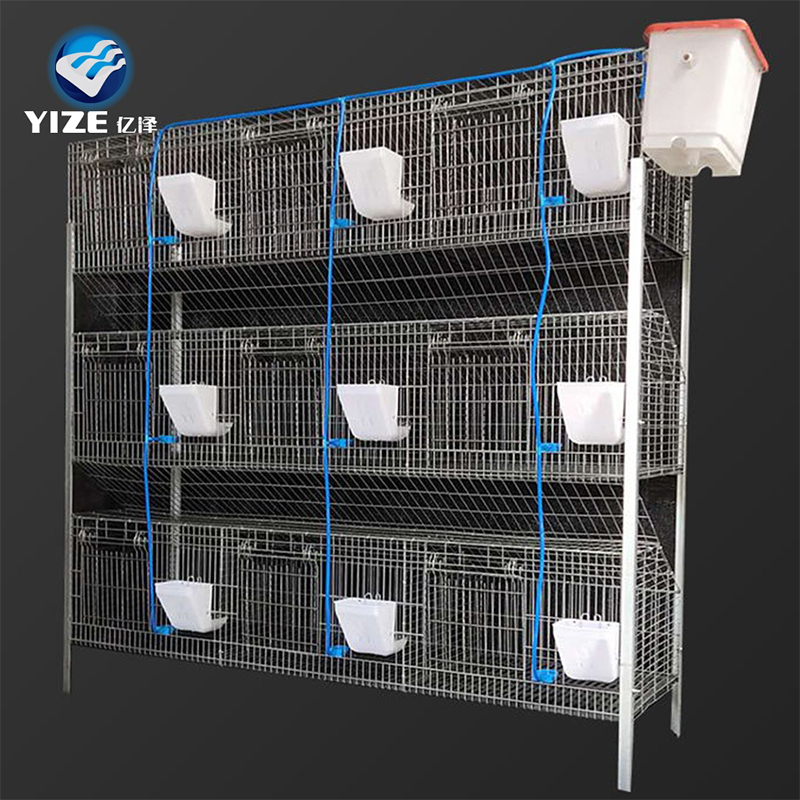Efficient Solutions for Mixing Farm Feed for Optimal Livestock Nutrition
Dec . 11, 2024 11:00 Back to list
Efficient Solutions for Mixing Farm Feed for Optimal Livestock Nutrition
Exploring the Importance of Farm Feed Mixers in Modern Agriculture
In the realm of modern agriculture, efficiency and productivity are paramount. One of the critical components that contribute to achieving these goals is the farm feed mixer. This essential equipment plays a significant role in ensuring livestock receive a balanced and nutritious diet, which is vital for their health and productivity. In this article, we will delve into the importance of farm feed mixers, their various types, and the benefits they bring to farming operations.
Understanding Farm Feed Mixers
Farm feed mixers are machines that combine various feed ingredients to create a uniform mixture that meets the nutritional requirements of animals. These mixers can handle a range of feed materials, including grains, forages, vitamins, and minerals. By uniformly mixing these components, farmers can ensure that each animal receives the correct amount of nutrients and minerals essential for growth, reproduction, and overall health.
Types of Farm Feed Mixers
Farm feed mixers come in several types, each designed to meet specific needs
1. Vertical Mixer This type features a vertical auger and is known for its thorough mixing capabilities. Vertical mixers can handle a wide variety of feed ingredients, making them versatile for large-scale operations.
2. Horizontal Mixer With a horizontal auger, these mixers are generally faster and are ideal for mixed rations. They are particularly effective for blending larger quantities of feed.
3. Hammer Mill Mixer This combines the functions of grinding and mixing, making it a compact and efficient choice for smaller farms that need to process and mix feed simultaneously.
4. TMR (Total Mixed Ration) Mixer Specifically designed for dairy farms, these mixers produce a complete feed ration that maximizes nutrient intake and minimizes waste, promoting better feed efficiency.
farm feed mixer

Each type of mixer has its advantages and is suited for different farming operations, from small family-run farms to large commercial enterprises.
Benefits of Using Feed Mixers
The implementation of farm feed mixers brings numerous benefits to agricultural operations
1. Enhanced Nutritional Consistency Farm feed mixers ensure that every batch of feed is mixed uniformly, providing livestock with a consistent diet. This consistency is crucial for maintaining optimal health and productivity.
2. Improved Feed Efficiency By mixing feed ingredients thoroughly, farmers can reduce feed waste. Livestock tend to eat more efficiently when provided with a well-balanced diet, leading to better growth rates and higher milk or meat production.
3. Time and Labor Savings Manual mixing of feed can be labor-intensive and time-consuming. Feed mixers automate this process, saving farmers time and allowing them to focus on other essential aspects of their operations.
4. Customizable Ration Formulation Farmers can easily adjust the ingredients in their feed mixes to tailor the nutrition to their specific livestock needs. This flexibility can help optimize animal performance based on age, weight, production goals, and nutritional deficiencies.
5. Increased Animal Health A well-balanced diet promotes overall animal health, reducing the risk of diseases and health complications. Healthy animals are more productive, ensuring a better return on investment for farmers.
Conclusion
In conclusion, farm feed mixers are an invaluable asset to modern agricultural practices. They not only enhance the efficiency of feed preparation but also contribute significantly to the health and productivity of livestock. As farming continues to evolve with advancements in technology and changes in consumer demands, the role of feed mixers in providing quality, balanced nutrition will remain essential. For farmers looking to optimize their operations, investing in the right type of feed mixer could be one of the most significant decisions they make, paving the way for a more productive and sustainable farming future.
-
Automatic Feeding Line System Pan Feeder Nipple Drinker|Anping County Yize Metal Products Co., Ltd.
NewsJul.30,2025
-
Automatic Feeding Line System - Anping Yize|Pan Feeder,Nipple Drinker
NewsJul.30,2025
-
Automatic Feeding Line System - Anping County Yize Metal Products Co., Ltd.|Pan Feeder, Nipple Drinker
NewsJul.30,2025
-
Automatic Feeding Line System-Poultry Farming|Chicken Feeding&Watering
NewsJul.30,2025
-
Automatic Feeding Line System - Anping County Yize Metal Products Co., Ltd.|Pan Feeder Nipple Drinker,Broiler Farming
NewsJul.30,2025
-
Automatic Feeding Line System Pan Feeder Nipple Drinker-Anping County Yize Metal Products Co., Ltd.
NewsJul.30,2025






